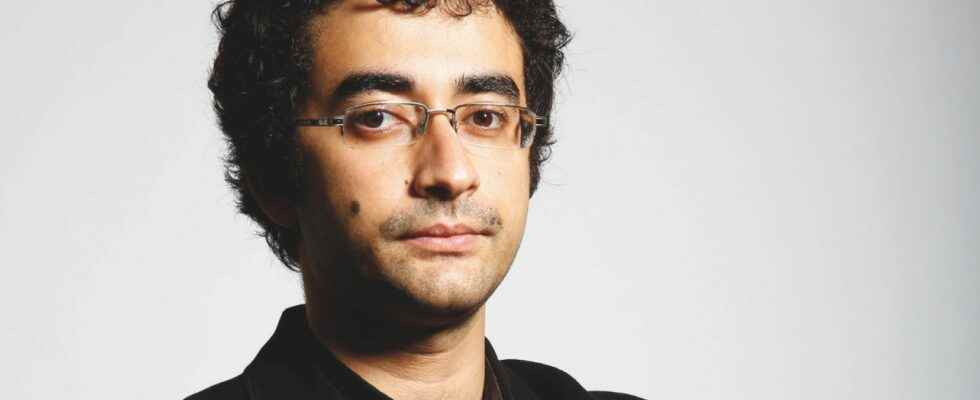Before the World Cup, we were talking about boycotting the World Cup, or not watching any matches taking place in stadiums built by workers who worked in atrocious conditions. According to several surveys, thousands of them died after contracting illnesses caused by the heat and a faulty sanitation system. Not to mention the banning of the LGBTQI+ flag on the streets of Qatar. However, many of the detractors of this World Cup were interested, from its beginning, in the results of the matches; their joy and their sadness do not depend on the game, but on the countries they love and to which they are attached.
For the French of Syrian origin that I am, whose country of birth has only participated in “the war cup” since 2011, it is a bit complicated to support this or that team. I settle in a Parisian café with a friend who can’t stop looking at the screen: Morocco is playing against Spain. I try to hide my ignorance of football things – I don’t know how to play this game, or even who the Moroccan and Spanish players are.
In Syria, when a match was broadcast on local television, the sports commentator always began with a word of thanks to Hafez el-Assad, “godfather of sport and sportsmen”, the leader, the father, the faithful – it is what the dictator should be called. Then he quoted the words of Assad: “I see a whole life in sport”. We did not know what sport it was, but we had to quote this sentence during sports lessons at school. The two best-known teams were that of Homs, Karama (which means “dignity” in Arabic) and that of Damascus, Al Shourta, (“the police” in Arabic). It was also a symbolic battle between the Damascenes, that is to say the bourgeois, and the Homsians, the poor. Often the Homsians won. After the match, it was whispered among the young people who laughed and exchanged winks: “we kept our dignity against the cops, dignity is the strongest, it is miraculous”. Everyone was passionate about the match: even my grandmother, who could no longer walk because of several illnesses, shouted “Karama” at the moment of victory.
At the time, I pretended to support Karama to share the joy of my friends and not come across as the weird boy in town. In France, I really support Morocco against Spain. Yet I hardly know this country, I’ve never been there, and nothing in it attracts me. It’s Spain, Andalusia, the Alhambra castle, the traditions, the Spanish language that I know and love.
“The human being puts himself on the side of the weakest team”
I must admit that I always have a form of solidarity with the less economically strong and less developed territories. It manifests itself during matches. In the series Money Heist, the professor who masterminded the robbery of the Bank of Spain reveals his plan to the team of thieves he has formed, giving the example of a match that never took place. “If, in the World Cup, Cameroon plays against Brazil, who would you like to see win?” Response from interested parties: “Cameroon”. And the professor to explain: “It is because the human being, each time, puts himself on the side of the weaker team, so if we show the world our weakness, our wounds, he will be with us. “
After Morocco won against Spain and then Portugal, it reached the semi-finals of the World Cup for the first time. The Moroccan flag floats everywhere, it is an immense joy for all the Arab countries. Slogans like “You have made us all proud”, “You are the champions of the world”, “You are the glory of the Arabs”, “Where is Ronaldo? We cleared it” are echoed by hundreds of millions of people living in this area known as the Arab world, accompanied by car horns, applause, and whistles. Even in the Syrian refugee camps, among the poorest places in the world, the flag is raised.
As is often the case, this “victory” is also reused for political purposes… The Palestinian flag is displayed in many towns, accompanied by “Allahu Akbar” and an index raised in the air (symbol of Islam, monotheism). For these people, it is above all a victory of Allah against the infidels.
While France were playing against England, I kept updating the websites to find out the result. Won ! The feeling of victory overwhelms me. The blues are going to play against the lions of the Atlas and I wonder which team to support in this match… The new Frenchman that I am, the one who has just obtained nationality a short time ago, can only be on the side of his country for reasons of belonging and attachment. During the 2018 World Cup, knowing that France had won the trophy was a big celebration. This time it’s different.
Should we support France against an African team? For some, the history of colonization is no stranger to this solidarity: Morocco deserves to win, for once in history, after having been occupied by other nations. And it is good that Moroccan citizens are happy, that they feel that they have won at least once, even if it’s just football.
For French people of North African origin, being on the side of Morocco is obvious. As for the one of Syrian origin, he would like to have a third choice. He supports both teams at the same time: if Morocco wins, so much the better for the hundreds of millions of Arabs suffering from dictatorship and corruption, who will thus be immersed in great happiness, boosted with dopamine. And if France wins, we go to the final. This is the advantage of being a Frenchman of Arab origin: when France plays against an Arab team, you are neither sad nor happy, but for and against both. Either way, we’re a winner!
